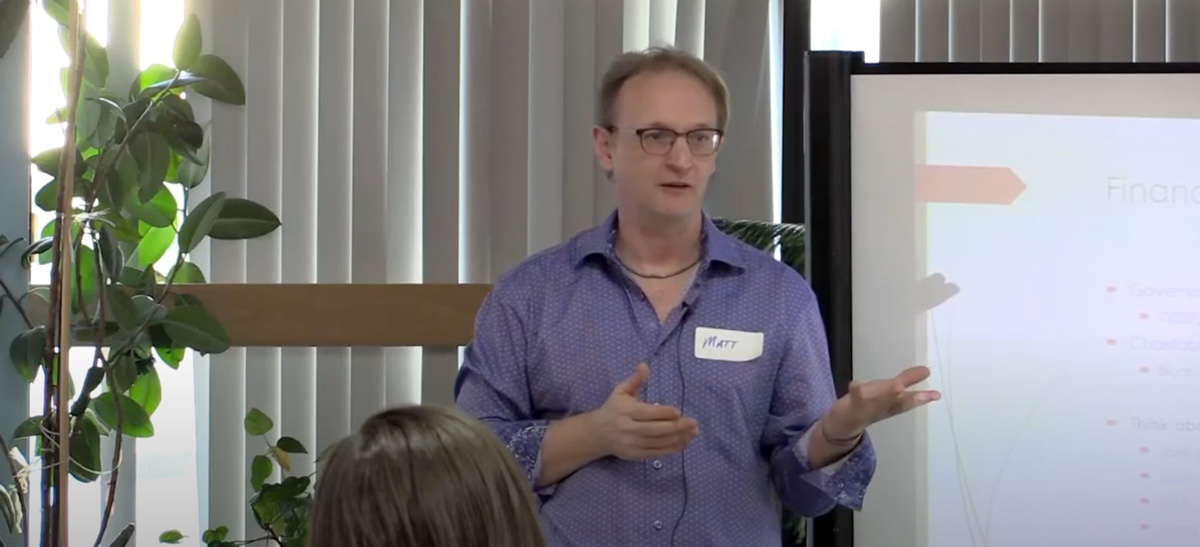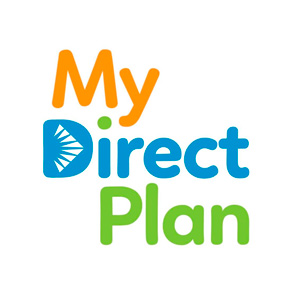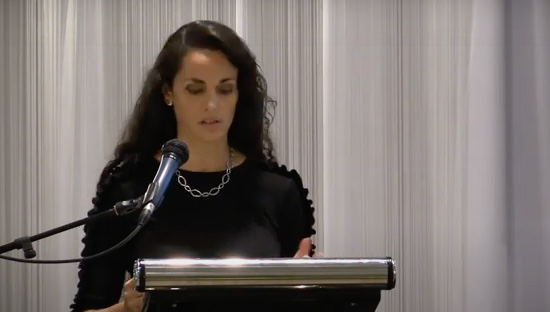Ron Malis, M.B.A. – Financial Advisor
This is a case study and extension of Ron’s article that appeared in Community Living Toronto’s Membership Newsletter – Connections – September, 2014 edition.
A few weeks ago, I spoke with a frontline ODSP worker who described ODSP as a measure of last resort. In other words, ODSP is only for people facing financially desperate circumstances. Putting it simply, this is entirely false. Even middle-income families need to rely upon ODSP and have every right to do so.
Kevin and Sophie Brewer (not their real names) have a 22-year-old daughter, Sophie (also not her real name), who has a developmental disability. Sophie lives with her parents and will continue to live with them for at least the next few years. In many ways, Sophie is independent. She is able to use the TTC to get to her part-time job, she knows her way around the stores in her neighbourhood, she can make her own meals when needed, and she can manage her bank account with some help. Sophie hopes to move out at some point and her parents support that idea.
Kevin and Naomi firmly believe Sophie will always need their financial support. Even though their collective annual income is close to $160,000, they have had a difficult time managing expenses over the years. When Sophie was younger, Naomi didn’t work for close to 10 years because Sophie’s needs were much greater at that time. With reduced income over many years and covering significant expenses related to Sophie’s disability, planning for their own long-term future and putting things in place to safeguard Sophie`s financial security has been a real struggle. Like many families, they are concerned they won`t be able to tend to their own financial needs, support Sophie especially when she moves out and leave enough in their estate for Sophie after they have passed away. They simply can`t manage it all on their own.
Turning to government supports, such as the Ontario Disability Support Program (ODSP), may be difficult for some, but it shouldn’t be considered a measure of last resort. ODSP is for people in financial need. That does not mean the individual and their entire family must be destitute before ODSP becomes an option. Families like the Brewers may earn a solid income, but that does not mean Kevin and Naomi have the means to support their daughter entirely on their own and hope to maintain their own financial security. As an adult, Sophie is in financial need.
Even though Sophie still lives at home with her parents, she is still allowed to receive ODSP benefits. The basic ODSP rule is that a single person is not allowed to have more than $5,000 in assets. Her parents’ assets and income are not counted towards this $5,000 limit. She will receive a reduced amount from ODSP since she lives with her parents and does not pay rent, but she still has a legitimate right to ODSP regardless of how much money her parents have or earn.
Once Sophie moves out of her parents’ home, her ODSP benefits will increase if she is paying rent. Many single people without dependents currently receive about $1,075 per month. This amount will help pay many of Sophie’s expenses such as rent, but it is not enough to maintain a reasonable standard of living.
Kevin and Naomi will supplement Sophie’s ODSP on a monthly basis. They will continue to buy her clothes and groceries, take her out for dinner and give her spending money. As long as they are alive and healthy, they feel they can take care of Sophie and pay for any expenses she can’t cover with her ODSP.
But, there are looming questions that keep Kevin and Naomi up at night. How will they make sure they leave enough money to support Sophie after they have passed away? What if they spend more in retirement than they had hoped, because they live longer than expected, or need to pay for supported care due to illness? How will they make sure that any money they leave for Sophie after they have died is managed properly and does not jeopardize her ODSP?
Kevin and Naomi are not alone. Many parents have the same worries. Saving, investing, and estate planning are challenging for any family. Add ODSP into the mix and the complexity increases, significantly. On the one hand, ODSP helps Sophie and the Brewers on a month-to-month basis. On the other hand, ODSP’s rules restrict their long-term planning options. How can they help Sophie save if she is only allowed to have $5,000 in assets? How can they leave her an inheritance?
Many people understand the basics of ODSP. Very few people understand the details. Yes, a single person without dependents is not allowed to have more than $5,000 in assets, but there are exceptions. Those exceptions include:
- Registered Disability Savings Plan – With the advent of the Registered Disability Savings Plan, some people on ODSP are accumulating significant amounts of money in long-term savings without jeopardizing their ODSP benefits.
- Personal residence – A person receiving ODSP is allowed to own his or her own residence.
- Henson Trust: Many parents set up Henson Trusts to hold the assets they leave behind after they pass away. While the assets in the Henson Trust exist to support the beneficiary, they do not affect their ODSP.
- Up to $100,000 in a combination of cash value life insurance, segregated funds, and discretionary trusts.
There are other exemptions, but the ones mentioned above are very useful for families like the Brewers. They provide options and some flexibility. They will help the Brewers care for their daughter Sophie when they are older and after they pass away.
Determining which solutions to use, how to use them and for what purposes requires an understanding of the pros and cons of each one, but they clearly demonstrates ODSP is not a measure of last resort. Families, their financial advisors and even ODSP frontline workers need to go beyond the basics of ODSP to accomplish key pillars of planning that will safeguard financial security.
Ron Malis is an Insurance Advisor with Independent Financial Concepts Group Ltd. and a Financial Advisor with Worldsource Financial Management Inc. His core focus is working with people with disabilities and their supporting family members. Ron has written many articles on the subject of ODSP, the RDSP and estate planning for families who have children with disabilities. These can be found at www.ronmalis.com
The information contained in this communication is general and is based on the perspectives and opinions of the owners and writers. It is not intended to provide specific personalized advice. Please consult an appropriate professional regarding your particular circumstances. The information provided might be derived from various sources and is believed to be accurate and reliable; however, no warranty can be made as to its accuracy or completeness.






